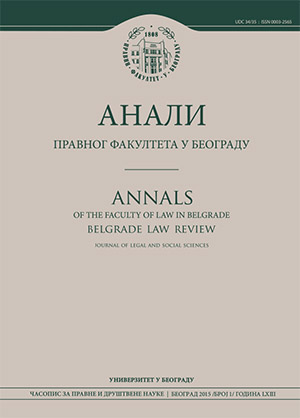РЕТРОАКТИВНОСТ ЗАКОНА У ПОРЕСКОМ ПРАВУ
RETROACTIVITY OF STATUTES IN TAX LAW
Author(s): Dejan Popović, Gordana Ilić-PopovSubject(s): Law on Economics, Fiscal Politics / Budgeting
Published by: Правни факултет Универзитета у Београду
Keywords: Intertemporal rules; Tax statute; Retroactivity; Retrospectivity; Entry into force;
Summary/Abstract: As a rule, in comparative tax law statutes do not have a retroactive effect. This principle may be either postulated in constitutions or derived by constitutional courts from the principle of legal certainty. The issue of retroactivity cannot be raised in the case of imposition of a property tax, since its taxable object per definitionem is property representing the result of the accumulation of unspent income realised in previous periods. Indeed, retroactivity is allowed in many legal systems subject to some strict conditions. The authors distinguish between retroactivity and retrospectivity, the latter being in principle permissible and denoting cases where a statute is applicable without grandfathering to the future consequences of a taxable event that occurred before its enacting. Analyzing the impact of Radbruch’s values contained in the idea of law (legal certainty, purposiveness and equality) on the principles of intertemporal law, the authors conclude that the prohibition of retroactivity implies the primacy of the principle of legal certainty, while retrospectivity puts in the foreground the principles of purposiveness and equality.
Journal: Анали Правног факултета у Београду
- Issue Year: 63/2015
- Issue No: 1
- Page Range: 5-22
- Page Count: 18
- Language: Serbian

